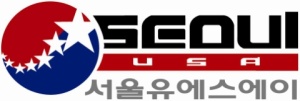 People in the West point to pictures of starving North Koreans as a sign that the North Korean state must be failing and about to collapse.
People in the West point to pictures of starving North Koreans as a sign that the North Korean state must be failing and about to collapse.
But starving North Koreans are actually proof that the North Korean state is succeeding, accomplishing its sole purpose; namely, the safety and protection of the Kim family and its policies. Those who are faithful and loyal and useful to the Kim family prosper; those who are considered faithless (or wavering), disloyal (or questionable), or useless to the government wither away and die, and their withering is a very public reinforcement of the most basic truth of North Korean life: Be loyal or be dead.
The principle behind this macabre truth is called songbun.
As Helen-Louise Hunter defines it in her brilliant must-read, Kim Il-song’s North Korea, Songbun is most simply translated as “class background.” As Robert Collins explains in his equally brilliant (and, unlike the Hunter book, free) Marked for Life: Songbun,
Songbun subdivides the population of [North Korea] into 51 categories or ranks of trustworthiness and loyalty to the Kim family and the North Korean state. These many categories are grouped into three broad castes: The core, wavering, and hostile classes. Kim Il-sung gave a public speech in 1958 in which he reported that the core class represented 25%, wavering class 55%, and hostile class 20%.
Collins notes that forty years later, those percentages would reappear in a very disturbing context:
In mid-1998 the World
Food Program, UNICEF, Save the Children,
and the European Union conducted the
first country-wide survey of the nutritional
condition of North Korean children. They
reported that 32% of the children showed
no evidence of malnutrition, 62% suffered
from moderate malnutrition, and 16%
suffered from severe acute malnutrition,
with an error rate of 5%. While the survey
had its limitations because of restrictions
placed on the effort by the North Korean
state, it is noteworthy that the size of the
three social classes is about the same as
the size of the nutritional categories.
Because people in the West do not understand this, they continue to believe that the solution to North Korea’s problems is sending food aid. It is almost impossible for Westerners to understand that sending food aid only reinforces the social classification system that itself is the problem in North Korea: Loyal people eat, disloyal people starve. This is why North Korean defectors do not advocate that food aid be sent to North Korea. They understand that changing the situation in North Korea requires cutting the root; that is, severing the songbun system.
Which brings us to the reason why possessing a Bible really is a worse crime than murder in North Korea. Back to Collins:
There are two types of crimes in North Korea–ordinary crimes and crimes of a political nature–and they are clearly distinguished in the North Korean political justice system. Within this context, songbun classification plays an important role in North Korea’s laws and legal system, leading to judgments and sentences that are discriminatory. Those of higher songbun typically get lighter sentences than those who commit similar crimes but are from the lower songbun classes.
But here’s the kicker: As Collins notes, possessing a Bible is not a crime in North Korea. Instead, it is a songbun classification. In other words,
When the 51 songbun classifications were finalized, based on the Resident Registration Project of 1967-1970, individual religious groups were given their own category. Shamans, geomancers, and those of other minor beliefs were classified as category 29; Cheondists (a native Korean religion) were classified as category 32; Protestants were classified as category 37; Buddhists were classified as category 38; and Catholics were classified as category 39.
So if a North Korean from a good songbun commits murder, he has committed an ordinary crime and may yet retain his good songbun if the murder does not threaten the state. But if a North Korean from a good songbun is caught with a Bible, then the North Korean by definition moves from a good songbun to a very, very bad songbun.
Which is why Bibles are always a more effective change agent in North Korea than rice.











Thanks for sharing! This is good fuel for prayer. :>}
Pingback: Nations, Councils, Commissions and Declarations Didn’t Write The Book On Human Rights. God Did. | Do the Word